|
TRANSLATE THIS ARTICLE
Integral World: Exploring Theories of Everything
An independent forum for a critical discussion of the integral philosophy of Ken Wilber
 David Christopher Lane, Ph.D.
Professor of Philosophy, Mt. San Antonio College Lecturer in Religious Studies, California State University, Long Beach Author of Exposing Cults: When the Skeptical Mind Confronts the Mystical (New York and London: Garland Publishers, 1994) and The Radhasoami Tradition: A Critical History of Guru Succession (New York and London: Garland Publishers, 1992). David Christopher Lane, Ph.D.
Professor of Philosophy, Mt. San Antonio College Lecturer in Religious Studies, California State University, Long Beach Author of Exposing Cults: When the Skeptical Mind Confronts the Mystical (New York and London: Garland Publishers, 1994) and The Radhasoami Tradition: A Critical History of Guru Succession (New York and London: Garland Publishers, 1992).
THE STUDY OF CONSCIOUSNESS
Glimpses into the Life and Work of Great Thinkers in Neuroscience and Philosophy
Chalmers |
Changeux |
Chomsky |
Churchland, Paul |
Churchland, Patricia |
Crick |
Dennett |
Edelman |
Flanagan |
Humphrey |
Huxley |
Koch |
Leary |
Lilly |
McKenna |
Nagel |
Tononi
Thomas NagelUna ShingBorn in July 4, 1937, Thomas Nagel is a world-renowned philosopher. Nagel has greatly contributed to our understanding of the mind and consciousness. He has published over 100 articles and books, spending the majority of his time educating the general public and students on different areas in philosophy through his writings and his public lectures. Today, he is a professor at New York University, specializing in philosophy of mind, political philosophy, ethics and the philosophy of science. 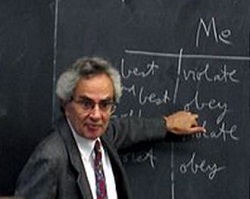 Thomas Nagel Nagel was raised in a humble family. He was born in Belgrade, Serbia. Nagel is the only son of Carolyn and Walter Nagel, who were German Jewish refugees. As a result, he regards himself as Jewish. Nagel married Doris Blum in 1954, but divorced in 1973. He then married Anne Hollander, but she died in 2014. In 1958, he received his first degree in philosophy from Cornell University. After that, he attended the University of Oxford with a full scholarship in 1960. Later, he studied political philosophy under John Rawls, one of the most influential philosophers at that time, and graduated from Harvard with a Ph.D. in 1963. After graduating, Nagel has taught at UC Berkeley and Princeton University. He has inspired and taught several influential philosophers, such as Susan Wolf, Shelly Kagan, and Samuel Scheffler. To this day, he is still utilizing his knowledge in philosophy and continued to inspire future generations. He is a member of the American Academy of Arts and Sciences and British Academy. In 2006, he was elected as a member of the American Philosophical Society. He is also a fellow of the Guggenheim Foundation and the National Science Foundation. Nagel opposes the idea of reductionism. Nagel believes that psychological phenomena cannot be reduced into physics and chemistry. His famous essay “What is it like to be a bat” argues against the reductionist viewpoints. We know that bats will produce high frequency voices. We know that bats can locate themselves and objects through echolocation. These are the way bats feel the world. It is widely different from how humans live and interact. Humans can never experience echolocation like bats. Humans can never fly like a bat. As a result, our imagination is limited. We never know what other people have gone through, because we are not them. Consciousness is not something that can be described objectively through theories. So, what is it like to be a bat? You never know, because you are not a bat. The same holds true for any third person description, since it never gets inside the first-person narrative. We can only know our own subjectivity, not another person's. To further argue against physicalism. Nagel published his controversial critique, Mind and Cosmos: Why the Materialist Neo-Darwinian Concept of Nature is Almost Certainly False. Nagel opposes the materialist view of the emergence of life and consciousness. He proposes that the emergence of life may be teleological instead of Darwinian natural selection and chance. Nagel points out that beginning in the 17th century, physical science has explained a lot of elements in the universe. As a result, many scientists will suggest that humans, as a part of the universe made up by these elements, can also be explained through physics and math. Nagel does not agree with this correlation. He agrees that physical science can unquestionably describe certain physical parts of what it is be human, but not everything. Since the evolution of living creatures contains consciousness, Darwin's theory (based on physical sciences) will be come up short. As a result, consciousness cannot be fully understood based on physical sciences. In addition, Nagel has also discussed the reasons behind altruistic actions. In 1970, Nagel published The Possibility of Altruism. He defends the idea that only rational causes are acceptable. And only subjective causes than are arise from rational causes are valid. He defends the concept of human nature and ethics, stating that altruism is included among the basic rational requirements of desire and action. Nagel has greatly contributed to the knowledge in philosophy of mind. To acknowledge his outstanding effort, he was awarded a Rolf Schock Price for his contribution in philosophy. He then received the Balkan prize award for his outstanding achievements in the fields of humanities. He also receives the Honorary degree of Doctor of Letters from the University of Oxford. Further Reading1. Mind and Cosmos: Why the Materialist Neo-Darwinian Concept of Nature is Almost Certainly False, Oxford University Press, September 2012 2. Other Minds: Critical Essays 1969-1994 , Oxford University Press; 1 edition (July 27, 1995) 3. Secular Philosophy and the Religious Temperament: Essays 2002-2008, Oxford University Press; 1 edition (December 18, 2009) 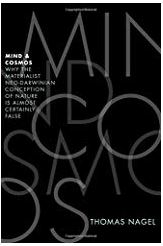 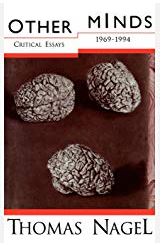 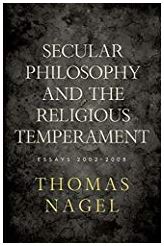 MSAC PHILOSOPHY GROUP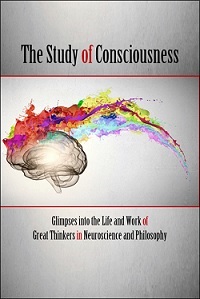
Human interest in the nature of consciousness dates far back to our ancestral past. However, it is only in the last century or so that researchers and philosophers have been able to tackle the problem in a more scientific way. This is primarily due to our increasing understanding of human physiology and how our brain functions. With the advent of ever more sophisticated technology—from fMRI scans, functional magnetic resonance imaging, to DARPA's neural engineering program, understanding neural “dust”—we are now able to not only create vivid simulations of cerebral activity but also to systematically reverse engineer the brain. Whether such empirical observations will unlock the secrets of self-reflective awareness is still open to vigorous debate. Nevertheless, the study of consciousness is now considered to be of elemental importance and has invited a large number of brilliant thinkers— from a wide range of disciplines, including mathematicians, quantum physicists, neuroscientists, and philosophers—to join in the discussions and offer their own contributions.
The following essays briefly explore the life and work of pioneers in the field of consciousness studies. Included in this eclectic mix are such notables as Giulio Tononi (University of Wisconsin), Paul and Patricia Churchland (University of California, San Diego), Noam Chomsky (M.I.T.), the late Timothy Leary and Terence McKenna, and Jean Pierre Changeux (Collége de France) among others.
Comment Form is loading comments...
|